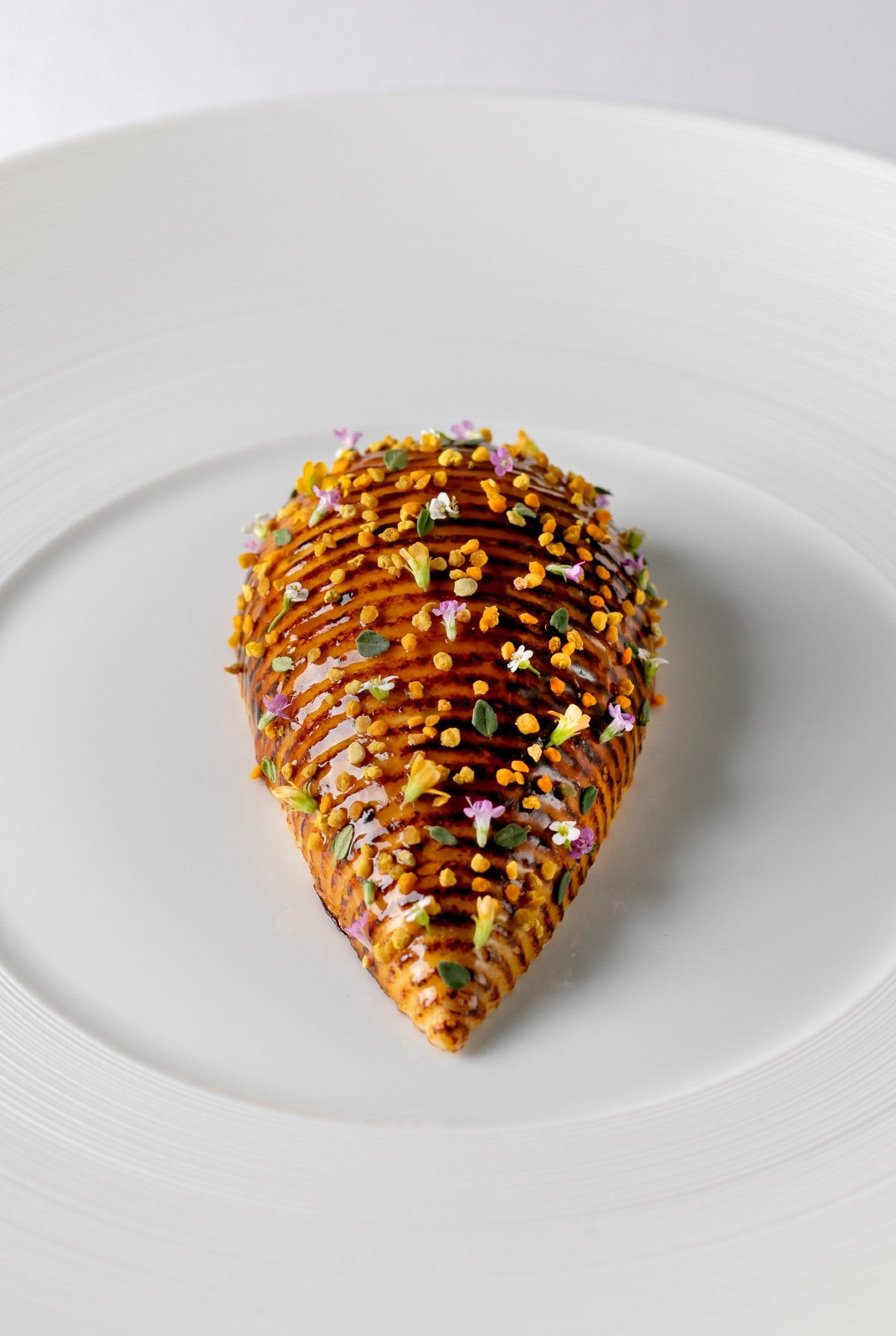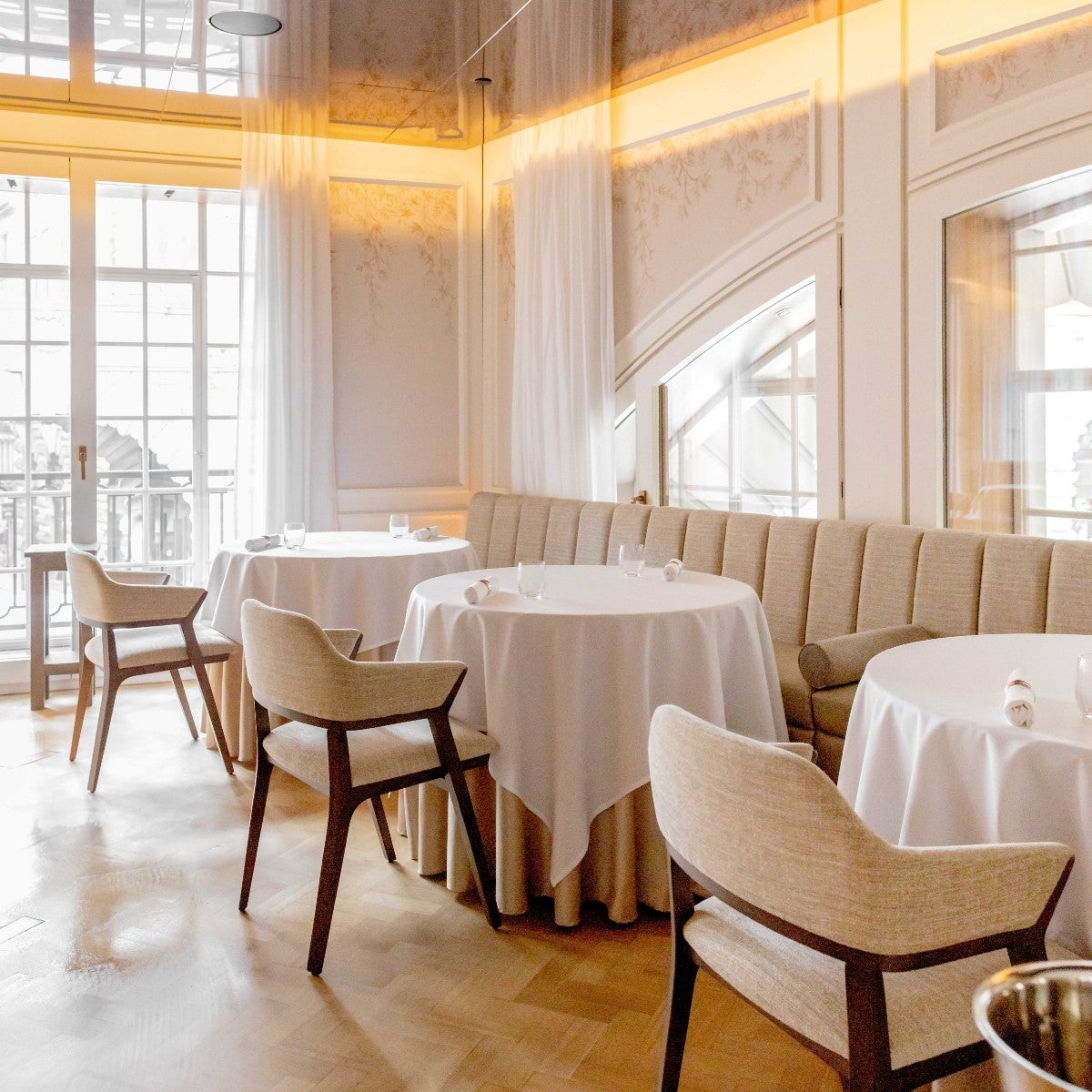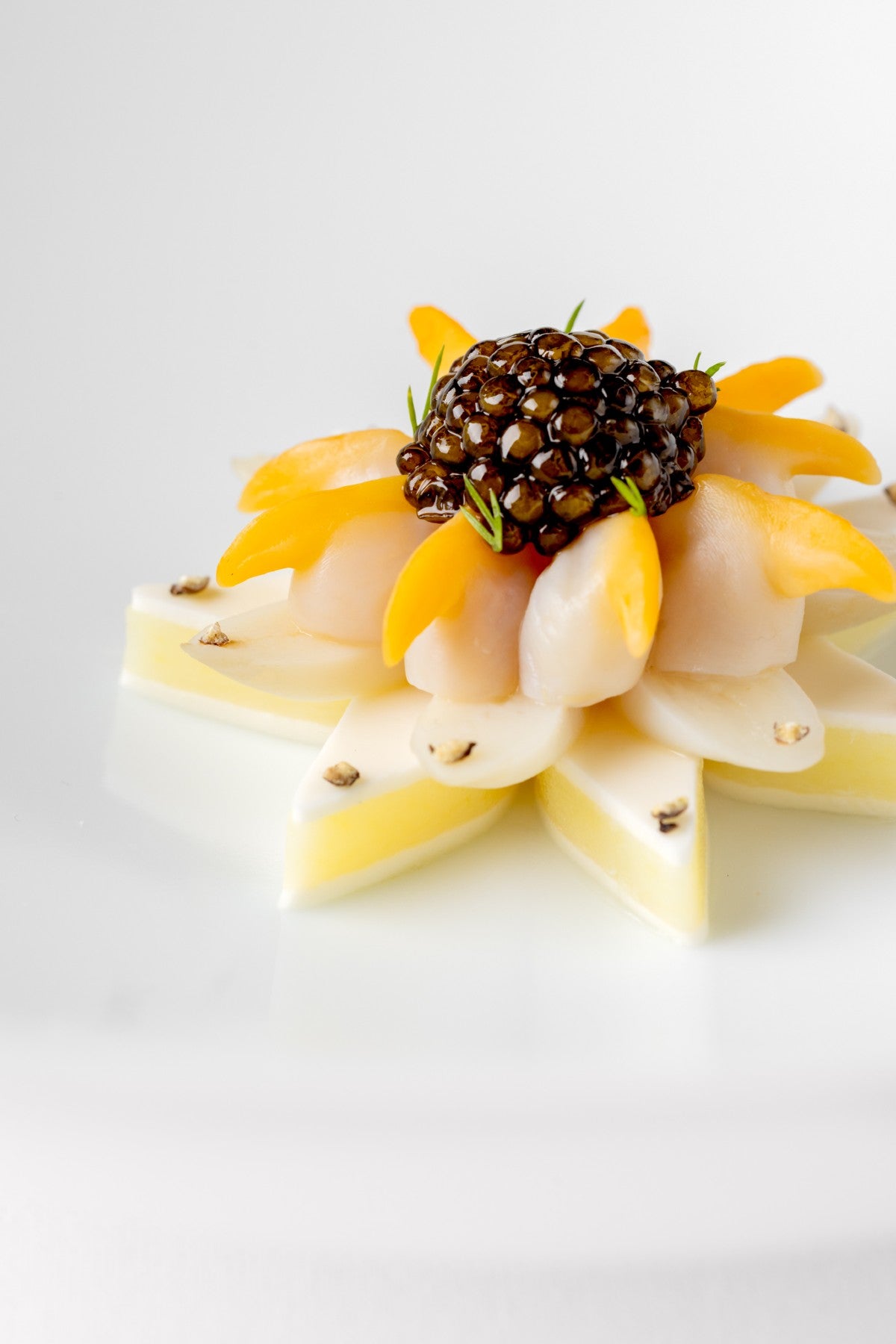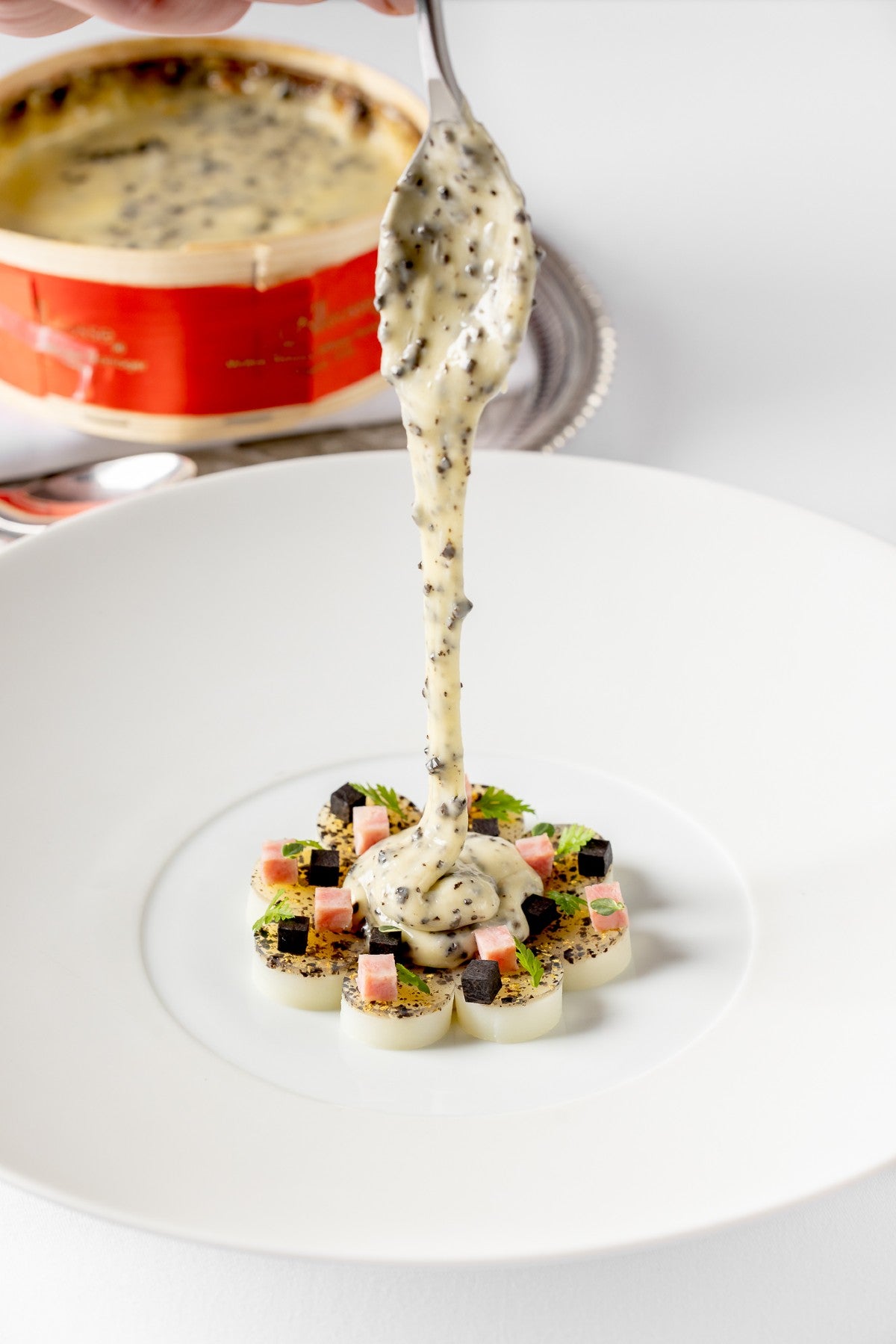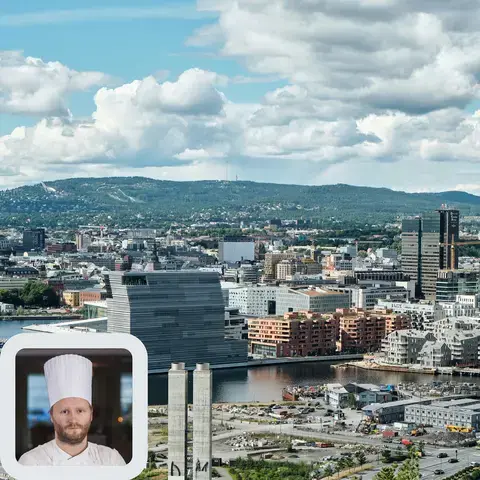How disarming is this? The chef of a two-Michelin-star restaurant who happily insists that roast chicken cooked by his mum, and, even better, sneakily picking the leftover succulent flesh off the carcass (we bond over this) is the most heavenly and comforting way to eat.
It’s no wonder then that Dilling’s haute cuisine ‘hunter chicken’ (below) cut from supreme Landes chicken has been a signature dish since his The Greenhouse days and customers won’t let him take it off the menu at his new restaurant Alex Dilling at Hotel Café Royal in London. Yet, he confides: “Much as we love cooking this dish and continually refining and, subtly, changing it up, what my chefs and I enjoy the most is the creativity and challenge of creating fresh combinations of flavours and techniques in new dishes to keep marking the evolving seasons.”
Clearly not one to rest on his laurels, Dilling boasts a stellar CV having spent time with Alain Ducasse in New York, and Hélène Darroze at The Connaught. Now, he has his own restaurant at the Café Royal with his name above the door and, the icing on the gateau, the restaurant was awarded two Michelin stars within six months of opening.
Alex Dilling has one of those very likeable soft American accents, more intonation than drawl, that’s difficult to place.


